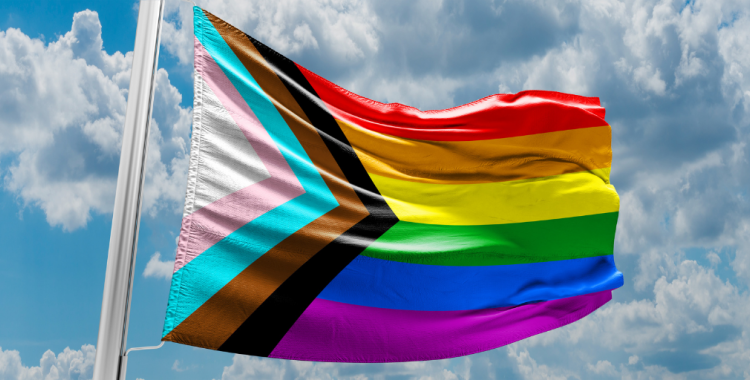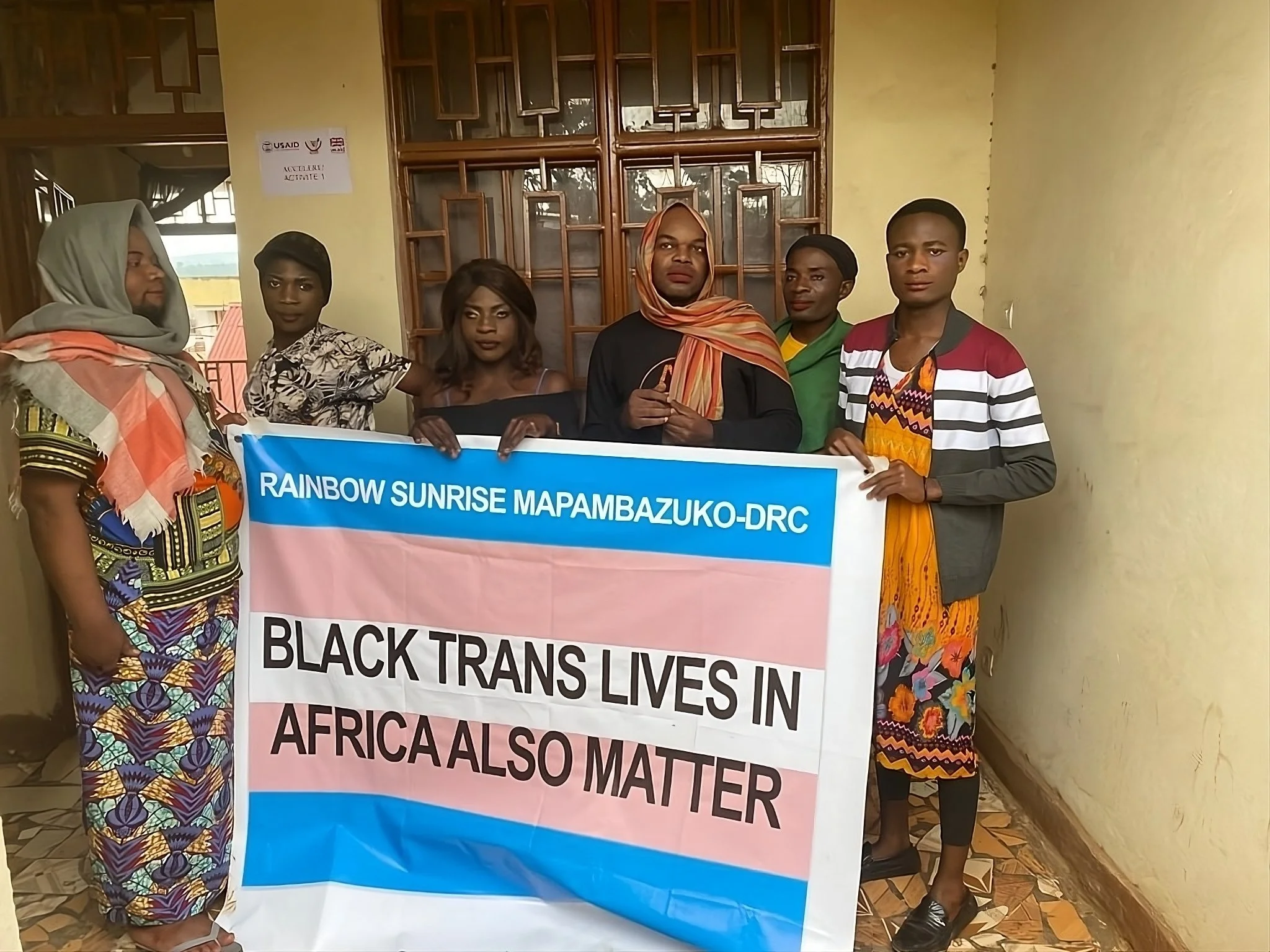LGBTQIA+ rights are human rights: Paving the way for inclusion in responsible mineral sourcing discourse
A guest blog post, courtsey of Jara Bakx & Lucie Goulet at Levin Sources
In the bustling artisanal gold mining sector of the Democratic Republic of the Congo (DRC), the daily struggles of individuals like Maya come to light. Maya is an artisanal gold miner. She also happens to be a trans woman working in an industry that is dominated by a patriarchal culture, offering little room for the recognition of diverse gender identities and sexual orientations. Every day, Maya faces ongoing discrimination, intimidation, and threats to her safety. At the end of a hard day’s work, Maya is denied payment for her contribution in extracting gold. When she raises the issue with her “patron” (boss), she is accused of bringing bad luck to the mine site and being undeserving of an equal earning to her counterparts. Aware of the potential consequences, Maya chooses to let the matter go, knowing that pushing any further might lead to unlawful detention or physical harm.
Maya’s story is not an isolated incident, but a representation of the realities endured by Lesbian, Gay, Bisexual, Trans, Queer, Intersex, Asexual and other (LGBTQIA+) individuals within the mining industry across the world. Experiences such as Maya’s serve as a painful reminder that queer individuals still face significant barriers preventing them from fully enjoying their human rights. This illustrates the need to integrate LGBTQIA+ rights into the responsible sourcing discourse, creating an environment that embraces inclusivity and safeguards the well-being of people irrespective of their sexual orientation or gender identity.
What does LGBTQIA+ mean?
LGBTQIA+ is an acronym that represents a diverse range of identities, including lesbian, gay, bisexual, transgender, queer (often used as an umbrella term), intersex, asexual, and more (see link for a full description). It is worth noting that inclusivity extends beyond these terms. In certain regions, alternative expressions are used. For instance, "2S" refers to Two-Spirit, a term cherished by many Indigenous communities in North America to embrace individuals with diverse gender identities and sexual orientations. In addition, "Same-Gender Loving" (SGL) emerged in the early 1990s to amplify the voices of Black queer people, creating a term free from the racism often associated with the white queer community.
Countless languages worldwide have their own unique terms, many predating their English counterparts or lacking translations in European languages. It is important to acknowledge that queer individuals exist in all communities, despite an absence of direct translations.
Just like women’s right, labour rights, and health and safety rights, LGBTQIA+ rights are human rights and therefore should be taken into account in any efforts to identify and mitigate human rights-related risks in mineral supply chains. However, a lack of existing data on the topic is holding our sector back from addressing these very real human rights challenges.
Here at Levin Sources, we help our clients understand and respond to human rights risks in their mineral supply chains. Our daily efforts include conducting research and providing strategic advice to businesses, organisations, and governments, all with the goal of creating an environment where everyone in the minerals sector can fully enjoy their human rights. Yet, LGBTQIA+ rights rarely emerge as a focal point. Despite there being publicly available information highlighting the pervasive violations of queer people's rights worldwide, gathering information specifically about the challenges faced by LGBTQIA+ communities in the minerals sector is an incredibly difficult task. While carrying out research for this article, we realised that human rights organisations and knowledge institutes involved in the minerals sector seldom release reports addressing the difficulties faced by queer individuals in mining. Moreover, they rarely offer disaggregated data that acknowledges the unique identities and experiences of LGBTQIA+ individuals. For instance, in most data, gender is predominantly viewed as a binary concept, thereby erasing the identities of non-binary people.
Conversations with LGBTQIA+ activists in the upstream and downstream minerals sector
We therefore reached out to LGBTQIA+ entrepreneurs and activists in both the upstream and downstream segments of the minerals sector to better understand their challenges in supporting the rights of LGBTQIA+ people. We spoke with Jérémie Safari (she/her), a trans rights activist and Executive Director of Rainbow Sunrise Mapambazuko (RSM). RSM is a non-profit organisation providing support to and promoting the human rights of the LGBTQIA+ community in South Kivu in the DRC. RSM has, for instance, worked with USAID on integrating LGBTQIA+ rights into their programmes in the region. Since 2010, Safari has been at the forefront of the fight for safety and equality for the Congolese LGBTQIA+ community. South Kivu has some of the country’s richest mineral deposits and has many gold artisanal and small-scale mining (ASM) operations. In Safari's encounters with queer minorities, particularly trans women, working in ASM, she repeatedly witnessed instances of rape, assault, humiliation, discrimination, intimidation, unlawful detention, and unpaid labour.
“LGBTQIA+ people who run small businesses around the mines are often assaulted, harassed, and publicly stripped, and others have their goods forcibly taken away by young people from the community. LGBTQIA+ people […] cannot claim their debt for fear of being beaten and humiliated. Others are sometimes evicted from their homes by law enforcement officers in complicity with local community leaders and traditional chiefs, accusing them of being in conflict with local customs because of their “satanic” sexual practices, while others are refused a house to rent because they are homosexuals. Trans women are subjected to corrective rape by members of the community in order to force them to change their sexual orientation, and some are also subjected to customary rituals to make them change who they are” – Jérémie Safari, Rainbow Sunrise Mapambazuko
Despite the severity of these acts and the presence of numerous international development organisations working towards improving the lives of ASM communities, Safari seldom comes across dedicated programmes or funding aimed at supporting LGBTQIA+ individuals in the Congolese ASM sector.
Copyright: Rainbow Sunrise Mapambazuko.
Although LGBTQIA+ rights issues appear not to be mainstreamed within the responsible sourcing discourse, there is an appetite from the private sector for more information on the topic. We spoke with Tracey Carswell (they/them), who co-founded Queer Metalsmiths, founded Powerful in Pink, and served as the founder and former president of the Women’s Jewelry Association (Miami chapter). Carswell is fostering a network of queer jewellers and metalsmiths in the United States. In the context of promoting inclusivity and leveraging their extensive experience in collaborating with like-minded individuals, Carswell had not come across discussions specifically addressing the support for upstream queer individuals involved in mining the minerals used in jewellery production. As Queer Metalsmiths continues to expand its operations, they are actively exploring responsible sourcing strategies. However, they have found that LGBTQIA+ rights are a noticeable gap within the responsible sourcing discourse. Nevertheless, Carswell remains optimistic, believing that their network of LGBTQIA+ entrepreneurs would be open to supporting queer individuals upstream. They assert, "queer and trans people care about others because they know what it is like to not be heard. [...] If I were able to guide people towards the right resources and explain that there is a way to support LGBTQIA+ miners, I definitely see this as the perfect time. Let's shine a light on this area".
Fostering change for a more inclusive minerals sector
These insights from both upstream and downstream perspectives highlight the need for more information, understanding, attention, and inclusion of local grassroots organisations working to improve the lives of queer people. RSM is just one local organisation among many that fights to protect LGBTQIA+ individuals from violence and discrimination. Queer Metalsmiths is but one company driven by a strong social mission, seeking tools to ensure their mineral sources are not inadvertently connected to the violation of queer rights. Although each LGBTQIA+ individual in the minerals sector will face a unique set of challenges to their rights depending on where in the world they live and how their work is set up, it is an undisputable fact that queer people are particularly vulnerable to human rights violations. The appetite of the downstream sector to support the LGBTQIA+ community may be there; the crucial next step is providing them with the necessary resources to take meaningful action.
At the moment, many international development and donor organisations shy away from incorporating LGBTQIA+ rights into their programmes in the Global South due to concerns about such activities being perceived as foreign interference in local customs and culture. This apprehension is rooted in the misconception that LGBTQIA+ identities are exclusively associated with Western culture, overlooking the fact that queerphobia itself can be a product of colonial influence. Postcolonial and queer researchers have found that, before European colonisation, many African and Latin / North American countries did not perceive gender as binary and did not automatically associate anatomy with gender identity. LGBTQIA+ individuals were less persecuted until European colonisation. In contrast, homosexuality has been criminalised in Europe since the 13th century.
In her interview, Jérémie responds to this notion by stating that: “I can only encourage them as the situation of LGBTQIA+ people in the mining sector is currently being neglected and forgotten. In order for the activities not to be perceived as foreign interference in the customs and culture of the DRC, these international organisations must collaborate and work with local organisations that are active in the field of human rights, but they must also put these local organisations at the forefront during the implementation of the activities so that they are not misperceived by the local community”.
Actively seeking to understand and address the unique challenges faced by LGBTQIA+ individuals in the minerals sector is a necessary step to ensure that we can contribute to a more inclusive and equitable industry. By recognising queer individuals as legitimate rightsholders who deserve the full exercise of their human rights, it becomes essential for any interventions aimed at managing human rights-related risks in mineral sourcing to strive for inclusivity. This starts by expanding our knowledge on LGBTQIA+ challenges within the minerals sector and actively contributing to the conversation surrounding this important issue.
RESOURCES
General LGBTQIA+ rights:
Stonewall, 2023. “List of LGBTQ+ terms”. Link: https://www.stonewall.org.uk/list-lgbtq-terms
Re:searching for LGBTQ2S+ Health, 2023. “2SLGBTQ+ Language Card”. Link: https://lgbtqhealth.ca/projects/docs/exploringattitudesreferencecard.pdf
Black Men's Xchange National, 2023. “What is Same Gender Loving?”. Link: https://web.archive.org/web/20131015005535/http:/bmxnational.org/faqs/what-is-same-gender-loving/
National Center for Transgender Equality, 2023. “Understanding Nonbinary People: How to Be Respectful and Supportive”. Link: https://transequality.org/issues/resources/understanding-nonbinary-people-how-to-be-respectful-and-supportive
Alimi, B., 2015. “If you say being gay is not African, you don’t know your history”. The Guardian. Link: https://www.theguardian.com/commentisfree/2015/sep/09/being-gay-african-history-homosexuality-christianity
Stonewall, 2020. “African sexuality and the legacy of imported homophobia”. Link: https://www.stonewall.org.uk/about-us/news/african-sexuality-and-legacy-imported-homophobia
PRISM, 2022. “Homosexuality in the Pre-Colonial Americas”. Link: https://www.prismfl.org/post/homosexuality-in-the-pre-colonial-americas
Human Dignity Trust, 2023. “A History of LGBT Criminalisation: Over 500 years of outlawing lesbian, gay, bisexual and transgender people”. Link: https://www.humandignitytrust.org/lgbt-the-law/a-history-of-criminalisation/
Parliamentarians for Global Action, 2022. “Advancing the Human Rights and Inclusion of LGBTI People”. Link: https://www.pgaction.org/inclusion/background/framework.html
Angelo, P.J. and Bocci, D., 2021. “The Changing Landscape of Global LGBTQ+ Rights”. Council on Foreign Relations. Link: https://www.cfr.org/article/changing-landscape-global-lgbtq-rights
USAID, 2023. “Advancing LGBTQI+ Inclusive Development”. Link: https://www.usaid.gov/LGBTQI
LGBTQIA+ rights in the minerals sector:
Maake, T.B., 2019. “Spaces of discrimination and multiple identities: experiences of Black homosexual mineworkers”. Link: https://ujcontent.uj.ac.za/vital/access/manager/Repository/uj:34506?site_name=GlobalView
Morris, M., 2018. “Mining firms set up LGBTI inclusion policies, but more work needs to be done”. ABC South West. Link: https://www.abc.net.au/news/2018-11-28/should-the-mining-sector-do-more-to-support-lgbti-workers/10557984
LGBTI Inclusive Employers, 2023. “Mining, Resources and Energy”. Link: http://www.inclusiveemployers.com.au/Industry/mining_resources_and_energy/
Renders, A., 2015. “Homophobic culture permeates mining industry”. Corporate Knights. Link: https://www.corporateknights.com/leadership/lgbt-employees/


